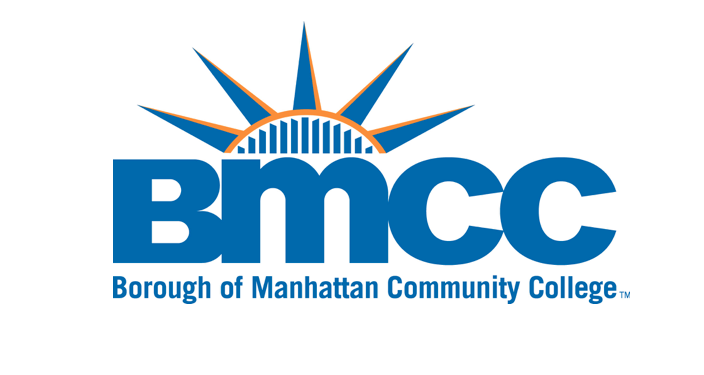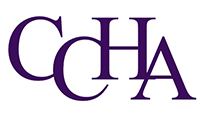
CALL FOR PAPERS
Transitions and Transactions IV:
Literature Pedagogies and Social Justice in Community Colleges
We invite Community College faculty to send proposals for the April 20-21, 2018 conference presented by Borough of Manhattan Community College, City University of New York, English Department. The Transitions and Transactions conference is dedicated to helping community college teachers flourish and excel as we envision, invent and expand our ideas of teaching given the demands of the community college population and the demands and constraints specific to our profession.
At the 2018 T&T4 conference, we will focus on teaching social justice through literature pedagogies, opening up the possibilities for raising critical questions and critical ways of teaching about the state of politics in the U.S. and the world at large. T&T IV invites teachers to think about the pressing issues of our particular historical moment. The escalation of police-community clashes, the constant media-presence of violent radical Islamic fundamentalism, all coupled with the reduction of culture and history to media sound-bites make the issue of trust in communication and speech and the ability to bear ambiguity all the more necessary and timely.
At once transformative and threatening, literary studies affects and is affected by the global and the particular. T&T IV’s concern with context invites presenters to consider the discourses that affect and create us as subjects and as teachers. These include: negotiating new sexualities and gender identities; increasing our environmental awareness while addressing issues of environmental justice; negotiating virtual existence and social networking, navigating the rhetoric of marketing where we urged to never “unplug”; making sense of history and culture often reduced to “take-aways” – or what one of our students’ asked so well in her essay: “What is the difference between reality and spin?” Our context calls on us to create new ways of critically and creatively engaging with our students in the historical moment we share with them
For example, many students today are engaged with environmental justice issues, specifically climate change. This is because social justice – justice for all people – and environmental justice – justice for our planet – are interconnected. Problems or difficulties that affect the environment have an impact on the people who live in that environment, and when some people have access to the means to alleviate the impacts of environmental issues, and others do not, that becomes a social justice issue. A U.N. report on climate change stated that, “People who are socially, economically, culturally, politically, institutionally or otherwise marginalized are especially vulnerable to climate change.” They are vulnerable to the many side effects of climate change, such as floods, water shortages, food insecurity, the spread of disease, and much more. As educators, we are poised to respond through the varied voices and expertise of community college faculty across the U.S. and beyond.
Literature & Social Justice Pedagogy Topics:
1. Collaborative Teaching and Learning Communities
2. Engaging a Reading Culture
3. Crowdsourcing Community Projects
4. Digital Multimodal Practices in the Teaching of Literature
5. (Dis) abilities and Teaching in the Literature Classroom
6. Election 2016: Campaigns, coverage and the Internet
7. Environmental Justice and Climate Change
8. Gender Constructions in the Text and in the Classroom
9. How Comics and Graphic Novels illustrate Social Justice
10. How to Help Prepare CC Students for Careers
11. How to Discuss and Debate Ethics Effectively in the CC Classroom
12. Is that News or Opinion? How to Help Students Decipher the Difference 13. Maps of Time: Data as Narrative
14. Money: Is Social Justice being shaped by Rising Income Inequality?
15. Open Web, Open News: Reporters and Developers Remix
16. Post-Multiculturalism and Marginalized Voices
17. Public Policy and its Relation to Community College Education
18. Revolutions on Stage (a nod at Hamilton)
19. Social Media and Revolution
20. Teaching Aesthetics and Politics
21. Teaching Literature in the ESL and Developmental Skills Classroom
22. Teaching Literature in Interdisciplinary Humanities Courses
23. Teaching the Politics of the University
24. Teaching Writing through Community Service
25. The Ethics of Authority (ethical practices of teaching)
26. The Rhetoric of Racial Profiling
27. Understanding Democracy and Democratic institutions
28. Urban Identities: students and texts in the Literature Classroom 29. Using Literature to Teach the History of Social Struggle
30. Writing and / as Testimony
31. Protests on the Streets and on the Page
This is an interdisciplinary call extended to community college teachers and graduate students. Additional topics are welcome. Extended deadline date: December 20, 2017. Send abstracts (minimum of 250 words) or inquiries to:
Dr. Margaret Barrow and Dr. Andrew Levy
Borough of Manhattan Community College/CUNY
English Department, Room N720
199 Chambers Street, New York, NY 10007
Telephone: (212) 220-8270 /Email mbarrow@bmcc.cuny.edu and alevy@bmcc.cuny.edu
For abstracts, please include a) name of author(s), b) affiliation, c) email address, d) title of presentation (e) body of proposal and (f) brief bio. We acknowledge receipt of all proposals submitted. If you do not receive a reply from us in a week you should resend. For a sample abstract contact us. Visit our website to learn about the conference and our two Keynote Speakers: Drs. Henry Giroux and Yolanda Sealey-Ruiz.
Non-presenters who prefer to participate in the conversations and workshops rather than deliver a presentation may attend on a first come, first serve basis subject to space available at the venue. To book, send an email to Dr. Barrow or Dr. Levy with “Booking Request” as the subject. Please include your name, affiliation and email address. Cost: $100.00 Full- time faculty; $50 Part-time faculty and $25 Graduate Students.
